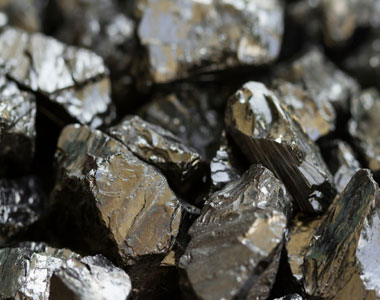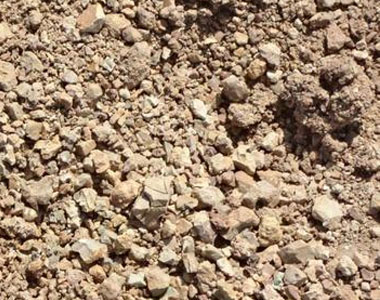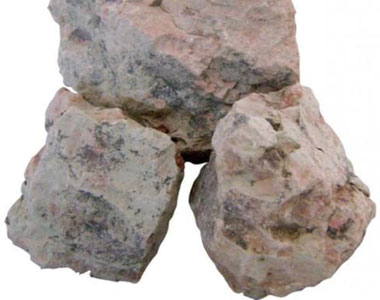Bentonite
Bentonite is an absorbent aluminium phyllosilicate clay consisting mostly of montmorillonite. It was named by Wilbur C. Knight in 1898 after the Cretaceous Benton Shale near Rock River, Wyoming.
The different types of bentonite are each named after the respective dominant element, such as potassium (K), sodium (Na), calcium (Ca), and aluminium (Al). Experts debate a number of nomenclatorial problems with the classification of bentonite clays. Bentonite usually forms from weathering of volcanic ash, most often in the presence of water. However, the term bentonite, as well as a similar clay called tonstein, has been used to describe clay beds of uncertain origin. For industrial purposes, two main classes of bentonite exist: sodium and calcium bentonite. In stratigraphy and tephrochronology, completely devitrified (weathered volcanic glass) ash-fall beds are commonly referred to as K-bentonites when the dominant clay species is illite. In addition to montmorillonite and illite anther common clay species that is sometimes dominant is kaolinite. Kaolinite-dominated clays are commonly referred to as tonsteins and are typically associated withcoal
Application of the Bentonite :
Surface Coatings :
The gel structure in water based coatings assists the suspension of other pigments. It also enhances application properties and prevents the applied film from sagging.
Paper Industry :
White Bentonite has the ability to scavenge for organics such as pitches and stickies. It is also used in Retention Aid Systems and to control ink and adhesive penetration.
Ceramics :
Because of its relatively pure nature and stong binding properties, White Bentonite can be used to improve the ‘green strength’ of ceramic bodies.
Adhesives and Sealants :
Gels formed from White Bentonite are particularly useful in structuring products which are subject to changes in pH during their manufacture. Applications include toilet cleaners, machine dishwashing liquids, cream cleaners, liquid detergents, oven cleaners and in powder detergents as a natural fabric softener.
Personal Care Products :
The gelling properties of White Bentonite has been utilised to control the viscocity and structure of such products as lotions, creams, antiperspirants, shampoos and hand cleaners where they give smooth gels which do not display the ‘ropiness’ often associated with organic gums. It has also been used to stabilise emulsions and as binders in tablet formation.



